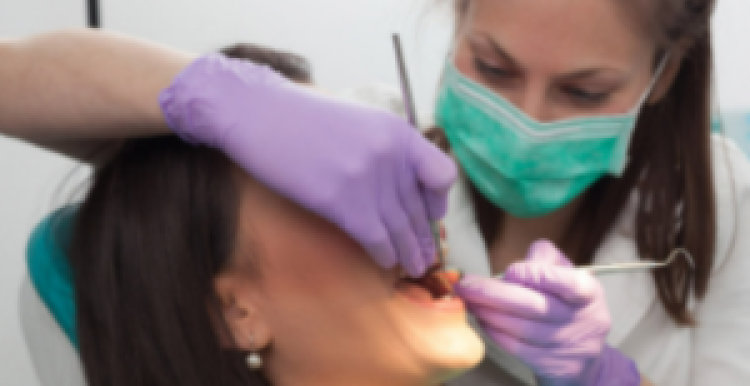Twin crisis of access and affordability calls for a radical rethink of NHS dentistry

Access to NHS dental care continues to be a problem for people across England, with Healthwatch recording a 22% rise in calls and complaints about dentistry between January and March 2021.
A review by Healthwatch England of 1,375 people’s experiences found a lack of consistency across the country when it comes to accessing a dental appointment. Whilst some people were asked to wait an unreasonable time of up to three years for an NHS appointment, those able to afford private care could get an appointment within a week.
People's experiences of NHS dental charges
- Over a quarter (27%) of respondents said they either struggle to pay or avoid dental treatments altogether because they cannot afford the costs.
- About one in three (30%) have reported they felt pressured into paying private fees to get all the dental treatment they needed. And nearly two in five (39%) reported that they had been charged extra for their NHS treatments.
- Almost a quarter (23%) feel they will now visit the dentist only when they need treatment, despite clinical guidelines recommending regular dental check-ups to keep people’s mouths healthy.
- Demographic groups who have been affected the most by the lack of NHS dental appointments and NHS dental fees include people on low incomes and those from ethnic minority groups – the same groups who have been worst hit by the COVID-19 pandemic.
Calling for equitable and affordable dental care
Reform of dentistry has been underway since 2009. Earlier this year, it was announced that NHS England would be taking over the process from the Department of Health and Social Care, but reform plans have yet to be announced.
In a recent report on the future of the NHS, the Lancet Commission stressed ‘an absence of affordability is a major barrier to dental care’ and suggested an abolition of patients’ co-payments to access and receive dental care.
Healthwatch England has called for greater ambition and urgency from NHS dental reform plans to create more equitable and affordable dental care.
Imelda Redmond CBE, National Director of Healthwatch England, said: “The twin crisis of access and affordability hitting NHS dentistry means many people are not able to access timely care – and the poorest are hardest hit. Those human stories show that oral health is a social justice and equity issue.
Reform of dental contracts needs to be a matter of urgency for this Government. New arrangements should include making access to NHS dental services equal and affordable for everyone, regardless of where people live, their income and ethnicity. Failing to act now will result in long-term harm for thousands of people, putting even greater pressure on the already overstretched healthcare system.
Case study
The impact on individuals
Gwen Leeming from Brighton has been suffering over the last couple of years with bad infections in two of her back teeth. She would take paracetamol and salt water to help her sore mouth and throat. After being told by her NHS dentist last autumn they are only open for private patients, it took her six months to see an NHS surgical dentist.
“I am a 72-year-old who has worked and paid National Insurance for over 50 years, so I can’t get health insurance any longer. As I live on limited income, which is supplemented by housing benefit, I can’t afford extra costs like private dental care.
I’m one of the many victims of our broken dental care system. It particularly is failing older patients who suffered (indeed still suffer) from the impact of 1960’s school dentists.”
Income and regional disparities
Almost twice as many people from lower socio-economic groups (SEG) D and E struggle or can’t afford to pay NHS dental charges (37%) than people from the higher socio-economic group, A, (19%). As a result, people from SEG D and E are also twice as likely to avoid dental care due to affordability issues.
People living in the North East of England are the most likely to avoid NHS dental treatment due to costs (13%), compared with just one in 30 (3%) who live in the South West. Despite this, people in the North East have been charged for NHS dental treatments the most (29%), while people in the South West were charged the least (13%).
People from ethnic minority groups
Just over a quarter of people from ethnic minority communities (26%) reported they would go to the dentist for regular check-ups, compared to two in five (41%) of White people. The survey also found that people aged over 55 from ethnic minority groups who are on low incomes were six times more likely to report avoiding dental treatments due to costs than their White counterparts.
1 - The online poll was carried out by Yonder Data Solutions from February 19-25, 2021, and received responses from 2,019 adults (aged 18+) based in England.
Oral Health and dentistry in England debate
On 25th May, there was a Westminster Hall debate in parliament on NHS dentistry tabled by Mohammad Yasin MP. Healthwatch England were able to successfully influence this debate using their recently published insight on dentistry.
You can watch the full debate by clicking here.